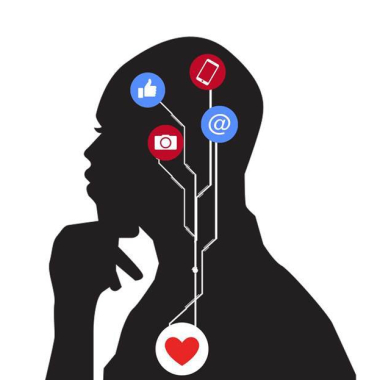by Joanne Goodman, University of Strathclyde psychology student
Valentine’s Day for many is an anticipated occasion filled with over-the-top affection, gifts and quality time with their partner. However those who find themselves single on the day, whether it be through personal choice, reasons beyond their control (e.g. the current pandemic), or having a social anxiety disorder, cannot escape the constant coverage of adoration shown throughout social media, traditional media and advertisements (Cuncic, 2020).. The risks from social media are already recognised for young people’s mental health, as exposure to it may lead to low self-esteem, envy towards other people’s lifestyle and being unsatisfied with personal actions unless shared on media sites (Mental Health Foundation, 2016). Valentine’s Day is guaranteed to emphasise these risks, as users have a dedicated day when they are able to flaunt how amazing their relationship is, with those watching from the outside inevitably comparing their own situation to it.

It’s important to discuss some of the negatives that come with Valentine’s Day.
Unrealistic Expectations
Often Valentine’s Day can lead to unnecessary conflict within relationships. A lack of communication is usually at fault (Neal, 2018), where one partner fails to express the extent of their expectations, i.e. buying extravagant gifts, perfect appearance, engaging in constant conversation and having a romantic night together. The other partner will ultimately fail to meet these expectations as they are either too high and out of their reach, or the person is completely unaware of them.
High Pressure
There’s an overwhelming amount of pressure on couples to spend tons of money on Valentine’s Day, from buying lavish gifts to splashing out for dinner, drinking and movie dates. In 2020, from the 41.1 million Brits who celebrated Valentine’s Day, altogether a whopping £1.45 billion was spent in retail, jewelry, and so on (Johnson, 2021). Further, Valentine’s Day puts a lot of pressure on individuals to not only be sexually active but actually genuinely want to engage in sexual acts. Which for most individuals is not an action that can just be turned on. If there is a pressure-filled atmosphere, subsequent bedroom problems may occur, such as performance anxiety (Gleim, 2021).
Anxiety and Depression
Individuals who are already struggling with anxiety and depression, may find themselves having a harder time during the Valentine’s celebrations. With social media being used as a tool to broadcast everyone’s fabricated lifestyle, comparing yourself to what’s online, may trigger feelings of shame and exclusion (Neal, 2018). These feelings are not only exclusive to individuals who are single during these celebrations, but also apply to those in relationships who may not be confident or satisfied with their partner (Neal, 2018).
For these reasons, we’ve decided to share some self-love and self-care tips, which are bound to make Valentine’s Day a little less intimidating:
1. Practise mindfulness
If you’re anxious, depressed or just want to have a better understanding of how you feel, practise mindfulness. Mindfulness is a type of meditation that focuses on being aware of your senses and feelings without judgement (Mayo Clinic). Practising this on Valentine’s Day, may help to uncover what and why you have negative feelings, whilst also relaxing your mind and body if it’s under stress.
2. Communicate Openly
If you have expectations for how you want to spend Valentine’s Day, it is a good idea to communicate them to your partner. Your partner is not a mind reader and if you expect them to be, expectations won’t be met and arguments can occur (Gielan, 2011). Your relationship will benefit from this openness, as it may create opportunities to celebrate new traditions and understand what both parties need (Gielan, 2011).

3. Be Your Own Valentine
Just because you’re single doesn’t mean you shouldn’t be able to enjoy some of the best parts of Valentine’s Day. Send yourself a love note expressing all your best qualities, buy some love heart shaped chocolates, put on your favourite outfit and prepare an extravagant dinner for yourself. We spend a lot of our time thinking about other people. Spend this day thinking about yourself.
4. Make Plan
Spend the day doing things that are unrelated to the Valentine’s celebrations. For instance going on a long walk, zoom dates with friends, having a pamper day filled with bubble baths, watching your favourite movie or ordering your favourite takeaway (Cuncic, 2020).
5. Ignore the day
Ignoring Valentine’s Day altogether might be a viable option for avoiding any unpleasant feelings you might be anticipating. Since we’re all stuck at home, it’s unlikely that you’ll be bombarded with celebrations in public, however social media feeds can find you in the comfort of your own home. Digitally detox for the day and you will not be exposed to any of it.
